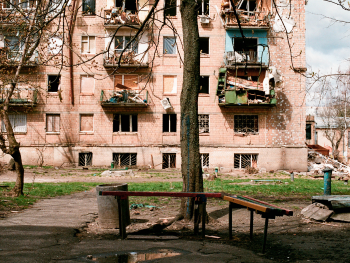Expert comment Last updated 28 June 2023

Following last night’s Russian missile strike, which took the lives of eight civilians in Kramatorsk, Lily Hamourtziadou, Senior Lecturer in Criminology and Security Studies at BCU, says war is often supported by a state’s people, no matter how unjust or aggressive - and warns ‘blind loyalty’ is having serious implications on the innocent and unarmed.
Dr Hamourtziadou, principal researcher for leading NGO Iraq Body Count, said: “The killing of yet more civilians in Ukraine is not surprising. 'UN estimates suggest 9,000 vulnerable and unarmed civilians have already been killed in Russian strikes and executions.
“Loyalty to conflict therefore is assumed, expected and even demanded in all states and nations, especially when at war - and not just in Russia.
“The military must be loyal to the nation and its leaders; the public must be loyal to the military and to its leaders; the media must be loyal to political and military elites, as they ‘fight for the country’. A war must be supported, no matter how unjust or aggressive. Nationalism, with a strong element of militarism, becomes part of the social fabric.
“However, when we don’t challenge conflict, but give our support and our obedience blindly and loyally, there are serious implications. We become less committed to human rights or to justice because what we want is victory for ‘our side’.
“How the war is reported is also dependent on loyalties, leading to disinformation. This presents challenges to casualty recorders, who rely on reported and available data, to document the accurate human cost of war.
“It’s worth also remembering that the principle of loyalty is not specific to Russian leaders, Russian military, Russian media, or the Russian people.”